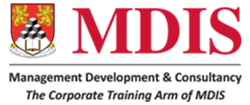
This 2-days workshop will uncover the capabilities and qualities that define the different types of leaders and their leadership styles which will help to equip business leaders and managers with the knowledge and ability to identify potential followers within their organisation for suitable leadership roles to promote organisational growth and development.
Wisdom is an integration of intelligence with experience and an integration of science and philosophy. Wisdom comes from living, from making mistakes, from listening to others and learning from others. This concept of ‘leadership by wisdom’ is highly relevant to today’s leadership study and development. The wisdom of a leader should embrace the virtues of benevolence and morality with deep insights and creativity in perspective. It is insufficient for a leader to be knowledgeable or intelligent yet far from wise. In today’s context, many leaders at organizational, national and international levels are grossly lacking in the wisdom to lead others. Wisdom is still a deficit in many of our world leaders today. In ancient China, education emphasized on teaching people to be wise rather than teaching people to be smart or skilful. A common Chinese saying is, “Learn to live likewise men.” It is about using what we have learnt and our wisdom to respond to the changing environment.
To the school of humanism espoused by Confucius and Mencius, humanity is the core of all human races. The school of humanism endorsed the virtues of righteousness and benevolence in order for a leader to be effective. On the other hand, the legalistic scholars, Xunzi and Han Feizi emphasized that a leader must occupy the top position of a power hierarchy in order to effectively execute strict discipline and the penal code. To Xunzi and Han Feizi, the roots of a man’s evil nature are his selfishness and greed. The third key school of the hundred thoughts is naturalism put forward by Laozi. To naturalistic, a wise leader is characterized as having profound understanding, with deep insights into Nature and humans. In the process of developing the 5-level leadership model, the works of Mozi, Sunzi and Sun Bin were reviewed and applied.
Upon completion of this workshop, participants will be able to;
- Learn and practice various Chinese classical leadership approaches (humanistic, and bureaucratic to strategic and naturalistic approaches) in leading different types of people, organization and situation.
- Discuss how each leadership type achieves success and which leadership approach fits you best at the different level of your leadership position.
- Develop a leadership style that suits your unique personality with a forward-thinking mindset.
- Improve your efficiency and effectiveness by strengthening your management & leadership skills
- How Strong Leaders Inspire Everyone To Take Lead, Executive, Guide, Influence and Reflect.
- How Evolved Leaders Gain Insight, Drive Change and Get Results in a dynamic business environment.
- Becoming strategically agile and able to quickly respond to changes, threats and trends.
- Direct new energies and time in leading your people to the higher level of excellence.
- Understand and apply your personality, experience and preference and key success factors of a strong or great leader.
- Recognise your leadership style or type and evaluate its effectiveness with your organisational structure.
Categories
More Information
- (Local Institution) MDIS - Management Development and Consultancy

Add a review